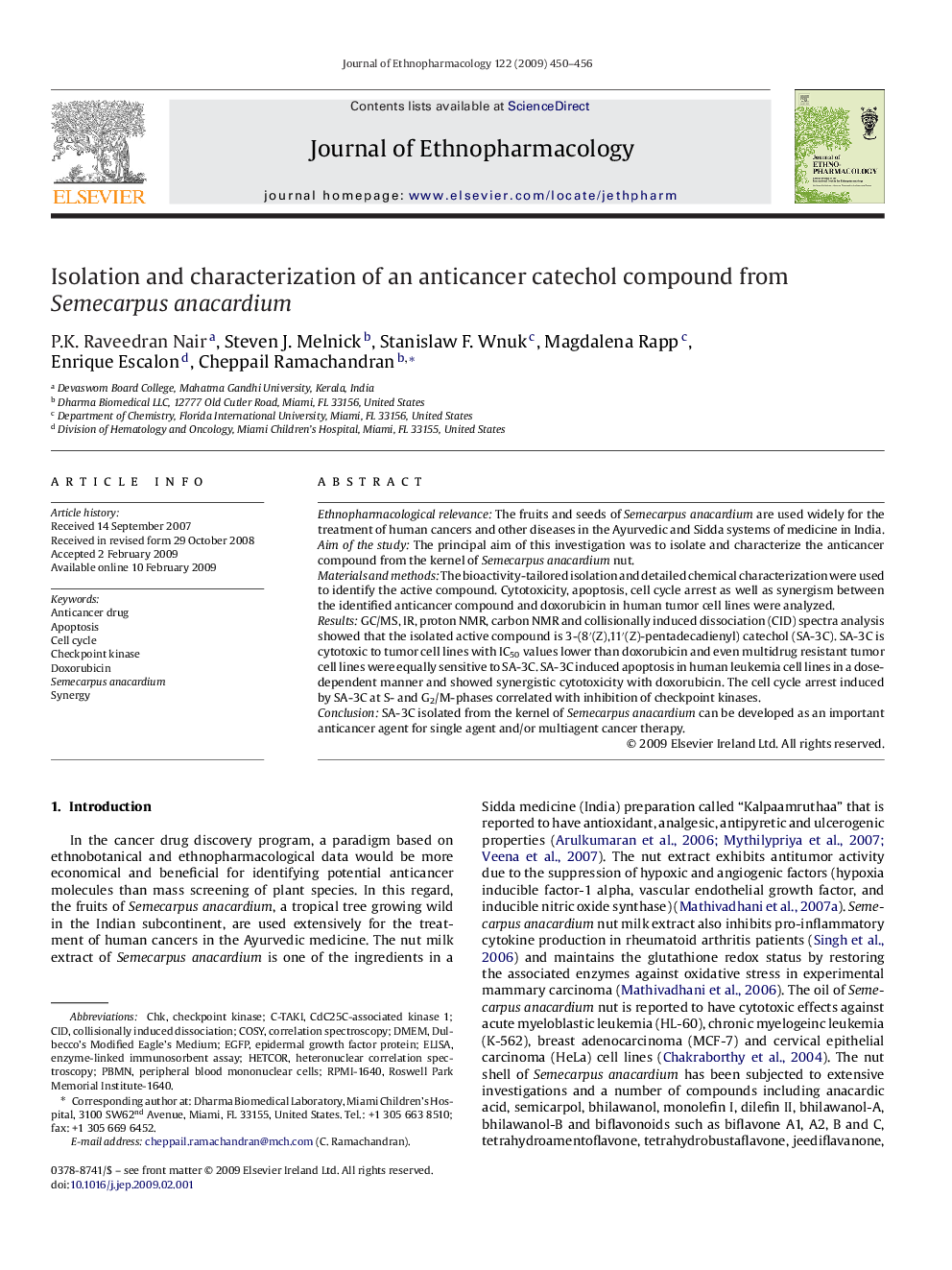| Article ID | Journal | Published Year | Pages | File Type |
|---|---|---|---|---|
| 2546875 | Journal of Ethnopharmacology | 2009 | 7 Pages |
Ethnopharmacological relevanceThe fruits and seeds of Semecarpus anacardium are used widely for the treatment of human cancers and other diseases in the Ayurvedic and Sidda systems of medicine in India.Aim of the studyThe principal aim of this investigation was to isolate and characterize the anticancer compound from the kernel of Semecarpus anacardium nut.Materials and methodsThe bioactivity-tailored isolation and detailed chemical characterization were used to identify the active compound. Cytotoxicity, apoptosis, cell cycle arrest as well as synergism between the identified anticancer compound and doxorubicin in human tumor cell lines were analyzed.ResultsGC/MS, IR, proton NMR, carbon NMR and collisionally induced dissociation (CID) spectra analysis showed that the isolated active compound is 3-(8′(Z),11′(Z)-pentadecadienyl) catechol (SA-3C). SA-3C is cytotoxic to tumor cell lines with IC50 values lower than doxorubicin and even multidrug resistant tumor cell lines were equally sensitive to SA-3C. SA-3C induced apoptosis in human leukemia cell lines in a dose-dependent manner and showed synergistic cytotoxicity with doxorubicin. The cell cycle arrest induced by SA-3C at S- and G2/M-phases correlated with inhibition of checkpoint kinases.ConclusionSA-3C isolated from the kernel of Semecarpus anacardium can be developed as an important anticancer agent for single agent and/or multiagent cancer therapy.
